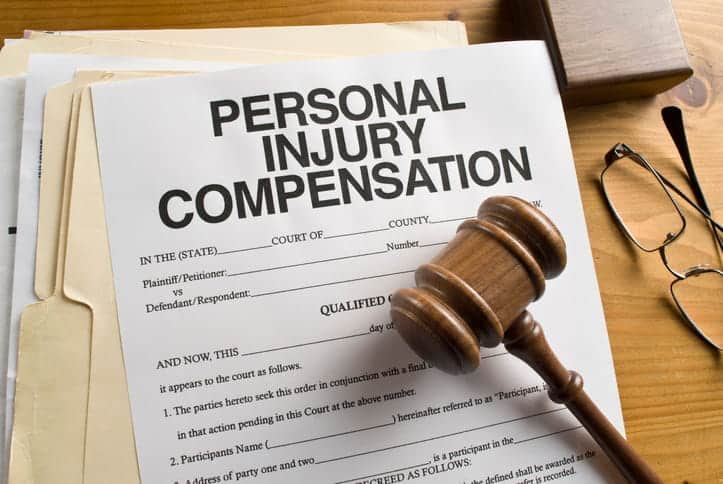Can You Sue Someone For Loss Of Enjoyment Of Life?

The losses following a personal injury are rarely limited to just the physical injury itself. Victims will often suffer intangible losses like the loss of enjoyment of life, emotional distress, and other incalculable life-altering consequences.
At the law office of Bachus & Schanker, we are committed to representing victims experiencing losses beyond physical and monetary losses. Work with a loss of enjoyment of life attorney who understands the life-altering consequences and complexities of personal injuries, including catastrophic injury cases.
Get the justice you deserve when you speak with a loss of enjoyment of life lawyer committed to protecting your rights. Contact us today to schedule a confidential free case consultation.
What is an example of loss of enjoyment of life?
In legal terms, the loss of enjoyment of life refers to the loss of the quality of a victim’s life because of their personal injury. The type of injury a victim sustains will determine the type of loss they will experience.
Additionally, no two cases are alike. Even if two individuals suffer the same type of injury, they could experience different types of loss. Different lifestyle choices, interests, and hobbies impact how people enjoy their lives.
Many examples can classify the loss of enjoyment of life, but it largely depends on the individual and the injury they sustain.
Disfigurement and scarring
For example, an injury such as an amputated body part, disfigurement, or scarring will impact a victim’s life much differently than a severe traumatic brain injury or spinal cord injury. An amputated limb may leave a victim with limited physical ability, but it might not have a severe impact on their mental capacity.
Traumatic brain injuries and spinal cord injuries
On the other hand, a traumatic brain injury or a spinal cord injury may bring with it more severe losses of enjoyment of life. Both these injuries can lead to life-altering medical issues like partial or complete paralysis, a limited mental capacity, the inability to see, speak, or hear, and other severe health complications.
Common injuries
Other examples of loss of enjoyment of life can result from soft tissue injuries, chronic pain associated with your injury, and more. These injuries can rob victims of being unable to enjoy certain aspects of life they would have otherwise been able to enjoy.
Mental health struggles
Additionally, mental health struggles that result after a physical injury can also keep victims from enjoying the quality of their lives. Mental health diagnoses, including anxiety, depression, PTSD, and others, can all have life-altering impacts on victims.
Can you sue someone for loss of enjoyment in life?
The state of Colorado allows victims who have been injured because of another person’s negligence the legal right to file for emotional damages via a personal injury lawsuit. When filing such a lawsuit, victims can seek damages that compensate them for their losses, including the loss of enjoyment in life.
The loss of enjoyment of life falls under the umbrella of non-economic damages. As defined by the Colorado Revised Statutes 13-21-102.5 (b), non-economic loss or injury includes emotional distress, pain and suffering, the loss of enjoyment of life, and inconvenience.
Unlike economic damages, non-economic damages are difficult to calculate because they are intangible in nature. Economic damages can be calculated through things like loss of income, medical bills, lost wages, and property loss.
Colorado’s judicial system uses a unique formula to calculate non-economic damages. Lastly, because non-economic damages are intangible, Colorado imposes a cap or a monetary limit on how much a victim can seek. Currently, claims on or after January 1st, 2022, are subjected to a non-economic damages cap of $598,350.
Can I sue for emotional distress in Colorado?
As with the loss of enjoyment of life, victims can also sue for emotional distress in Colorado. However, to do so, the elements of negligence must be present.
Often, emotional distress refers to the mental suffering an individual faces because of their injury. The emotional distress does not have to be a direct consequence of the injury but can be a second-degree response to the injury. Examples of emotional distress include traumatic flashbacks, anxiety, and other emotional and mental stressors related to the injury.
How can I prove the loss of enjoyment of life in Colorado?
To successfully claim damages associated with the loss of enjoyment of life or emotional distress, you have to prove that a defendant’s negligence caused your injury. The legal concept of negligence has four critical components outlined in 13-21-111 of the Colorado Revised Statutes. They include:
- A duty of care: A defendant must have an established duty of care toward you. For example, an employer has a legal responsibility to make sure you have a safe workplace.
- A breach of that duty: The defendant violated their legal obligation to you
- Damages: Losses that were sustained because of the injury
- Causation: The defendant’s breach of duty is what caused events that led to your injury
There are many ways to prove negligence on the defendant’s part. The following are some of the most common ways to prove negligence has occurred:
- Photographs of your injuries and the accident
- Witness statements
- Medical records
- Police reports
- Accident reconstructions
When you can prove negligence and causation, the connection between a defendant’s actions and your injuries, you will need to show you suffered losses because of your injury.
Any of the following can help prove you have suffered a loss of enjoyment of life:
- Statements from family members, friends, mentors, teachers, coaches, and any other individual who can shed light on your lifestyle before your accident and how your injury has impacted your life
- A personal injury journal that documents how you feel and how you have been navigating life following your injury, including how the injury has impacted your life
- Medical records before and after your injury
- Photographs of your injury
- Statements from employers and medical professionals who have worked with you
Loss of enjoyment of life lawsuit in Colorado

If you have been injured because of someone else’s negligence and have suffered a loss of enjoyment of life as a result, seeking legal representation can help you exercise your rights to the fullest extent.
At Bachus & Schanker, our experienced attorneys understand the consequences of severe and life-altering injuries, including those that result from catastrophic injury. Our very own Kyle Bachus has intimate knowledge of the consequences of a catastrophic injury and has helped countless victims navigate the road ahead with his best-selling book Unthinkable. Learn more when you contact our catastrophic injury lawyers today.
Along with our Victim’s Advocates team, our law firm is dedicated to serving and protecting the rights of victims who have suffered because of someone else’s negligence.
Contact our team today to schedule a free case consultation and learn about your rights and options for filing a loss of enjoyment of life and emotional damages lawsuit.
Sources:
CRS 13-21-102.5 (b).
CRS 13-21-111.
Spinal Cord Injury. (2023).
State of Colorado. (2023).
Traumatic Brain Injury. (2023).



